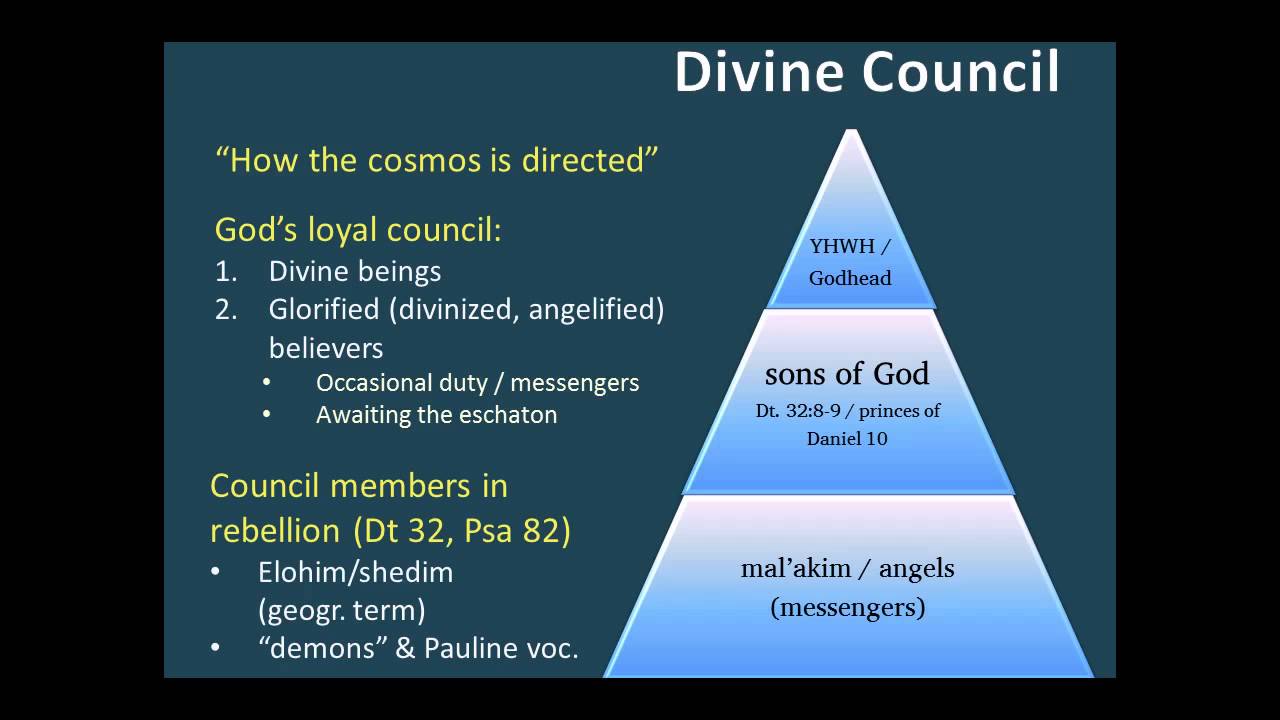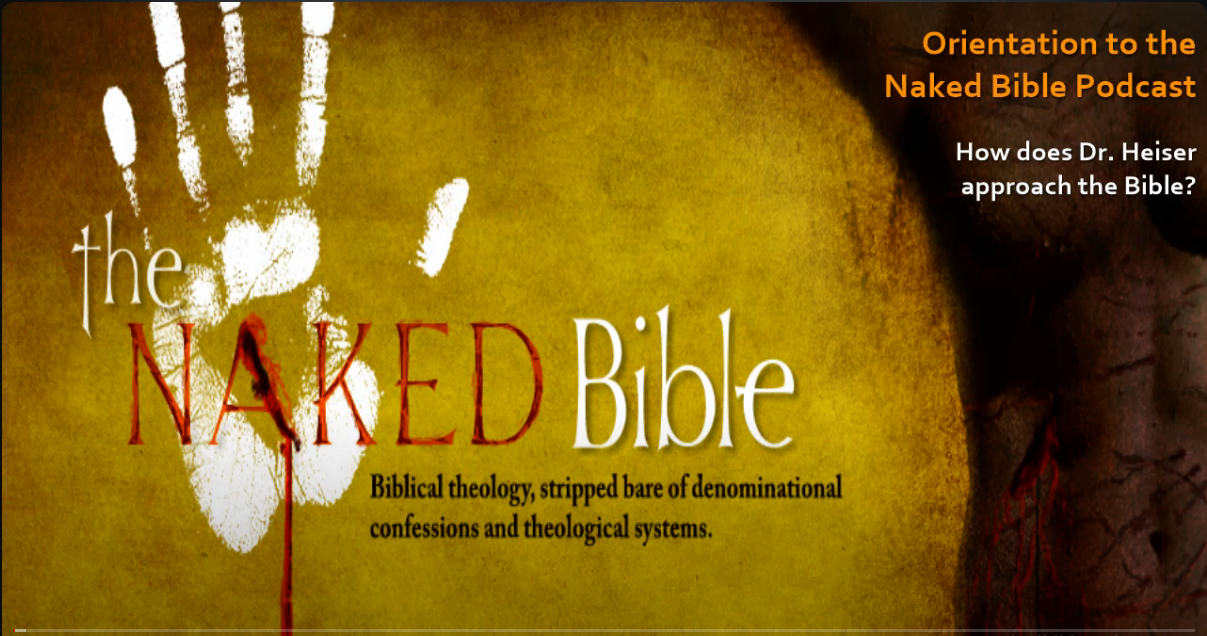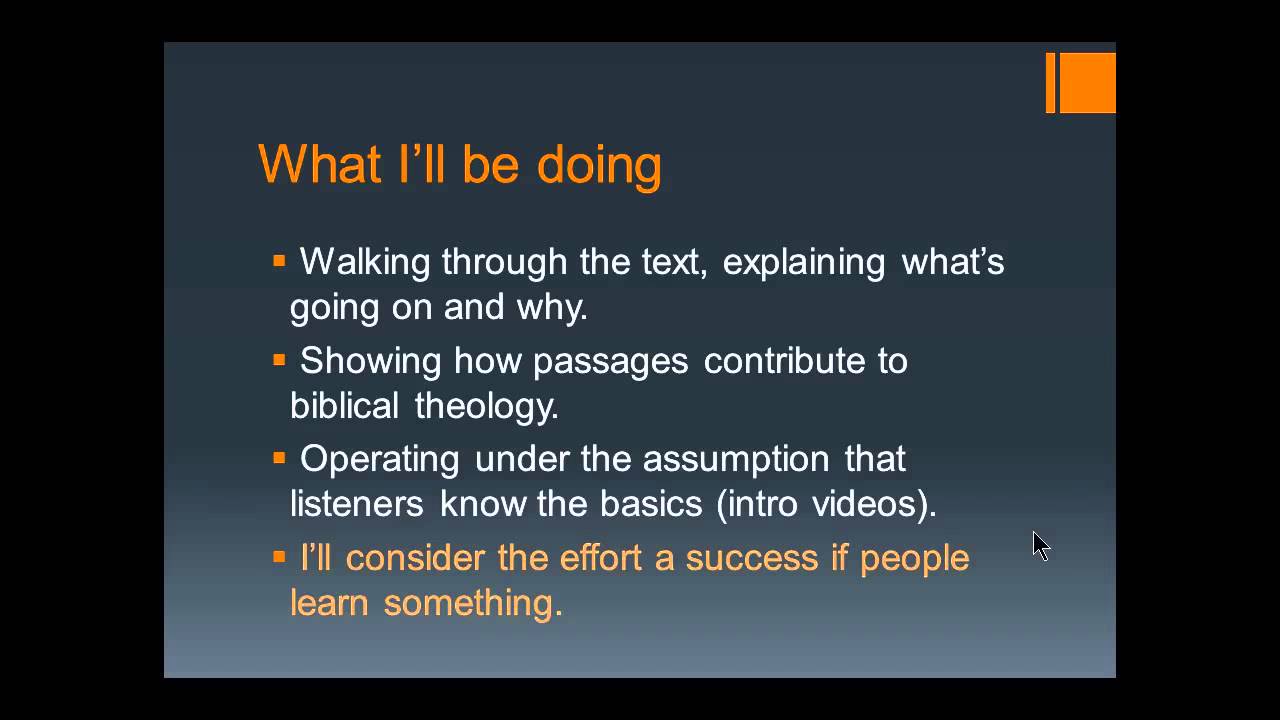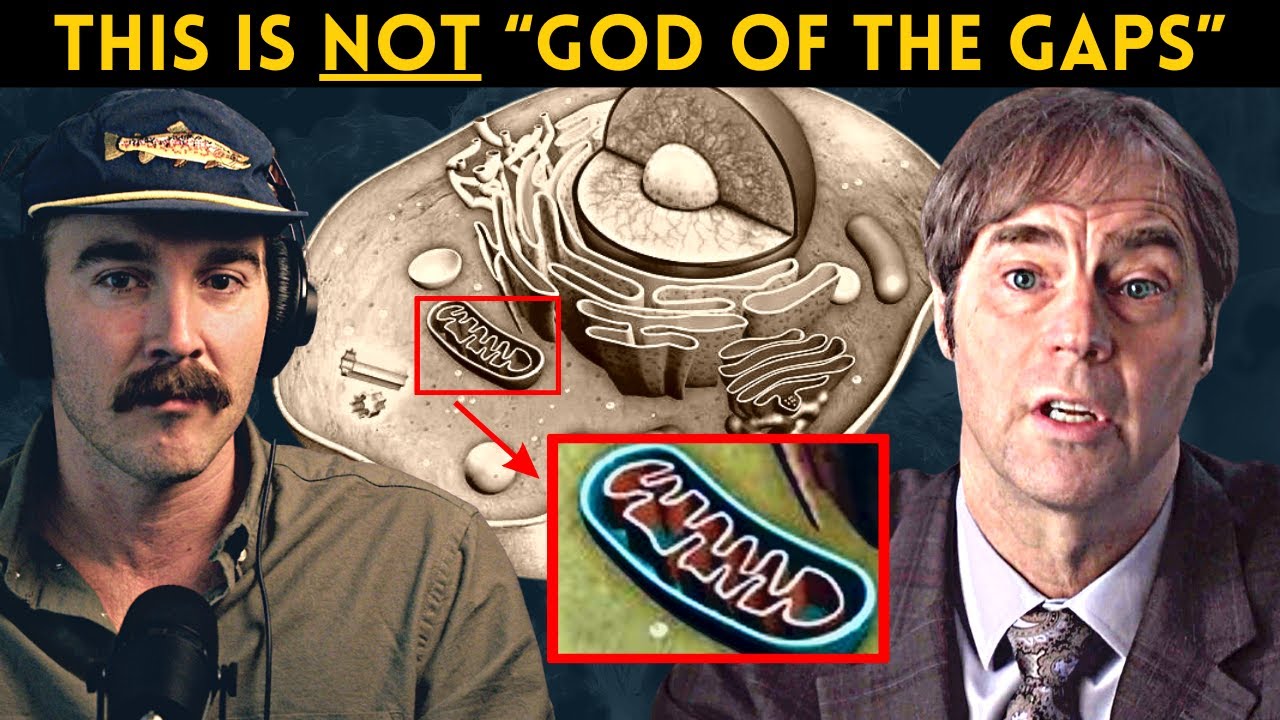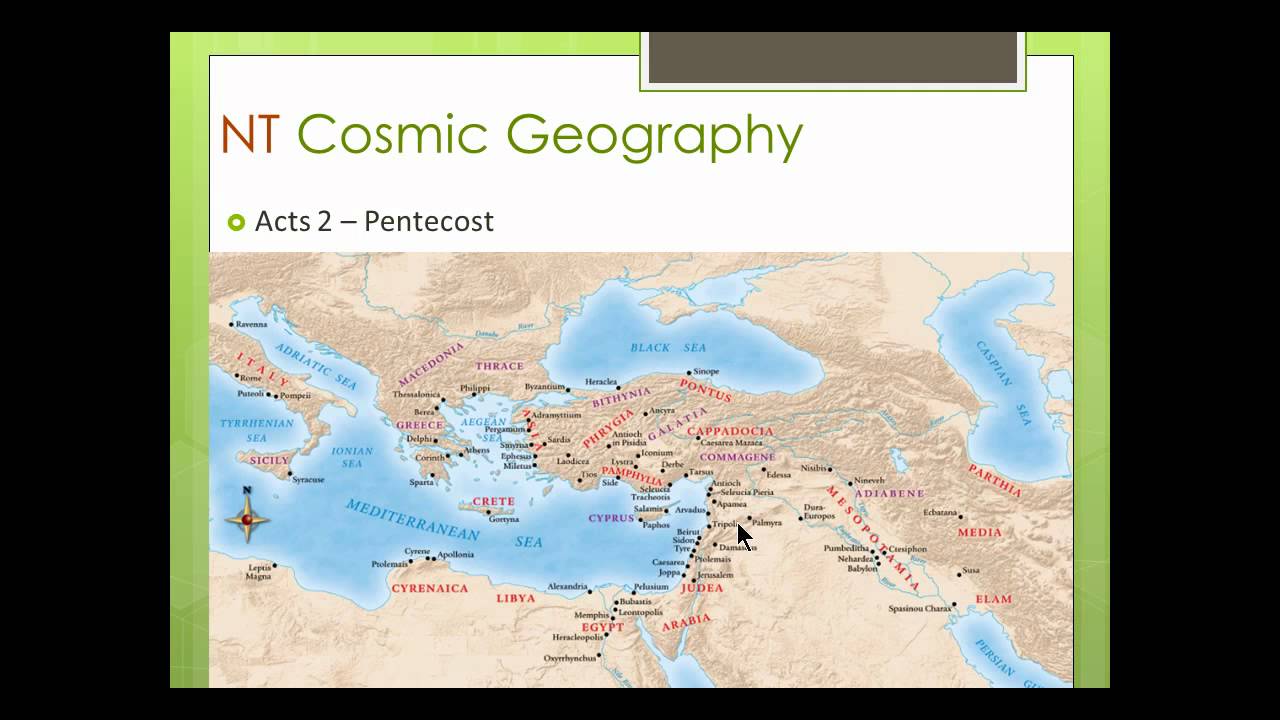
YOUTUBE & OTHER LINKS:
https://www.youtube.com/watch?v=pKPid4i4SmI
https://nakedbiblepodcast.com/newstarthere/
ONE-SENTENCE TAKEAWAY:
The divine council worldview, grounded in Scripture, is essential for accurately understanding God's plan to restore human participation in his rule.
SUMMARY:
Dr. Michael Heiser introduces the concept of the divine council in biblical theology in a 25-minute video.
IDEAS:
- The divine council consists of spiritual beings, not humans or idols, as evidenced in Psalms.
- Elohim is a term used for various spiritual beings, indicating their realm, not unique attributes.
- The divine council is where God issues decrees and accomplishes his will, with hierarchy and roles.
- God's original intent was for humans to be part of his divine council family, restored in Revelation.
- Some divine council members rebelled, like the serpent in Genesis 3 and the shading territorial entities.
- The divine council participates in decision-making, as seen in 1 Kings 22 and Daniel 4.
- God's foreknowledge does not necessitate predestination; he knows all things real and possible (1 Samuel 23).
- Cherubim and seraphim are throne guardians, with Mesopotamian and Egyptian origins respectively.
- Biblical writers used familiar iconography and terms from their cultural contexts, like Isaiah and Hezekiah.
- Understanding the divine council is crucial for interpreting Scripture accurately, not relying solely on tradition.
- The divine council worldview stems from Deuteronomy 32 and is essential for the Naked Bible Podcast.
- God desires to include humans in his divine council, as his imagers and co-rulers on earth.
- The divine council is involved in decreeing judgments, like Nebuchadnezzar's insanity, for God's glory.
- Yahweh is incomparable and unique among the elohim, but their existence is not denied.
INSIGHTS:
- The divine council worldview is essential for accurately interpreting Scripture in its original context.
- God's ultimate plan is to restore humans to their intended role in his divine family council.
- The biblical writers used culturally familiar terms and imagery to communicate spiritual truths to their audience.
- God's sovereignty and the free will of spiritual and human agents are compatible in the divine council.
- Recognizing the divine council helps resolve apparent contradictions about God's uniqueness and other spiritual beings.
- The hierarchy and roles within the divine council reflect God's orderly rule over creation.
- Yahweh's incomparability among the elohim is based on his unique attributes, not denying their existence.
- The divine council is involved in executing God's decrees, participating in decision-making for his glory.
- Foreknowledge and predestination are not synonymous; God knows all possibilities but doesn't predetermine everything.
- Humans are created to be imagers of God and participate in his rule, which will be fully restored.
QUOTES:
- "The divine council is in the spiritual realm, it is not on the earthly realm, it's in the heavens."
- "They sacrifice to demons, not God, to gods they had not known, to new gods that had recently come along."
- "Yahweh is an elohim, but no other elohim is Yahweh. He is incomparable."
- "The divine council is where the cosmos is directed. It's where God issues decrees and gets things done."
- "As many as received him, to them he gave the authority to become the sons of God."
- "The book of Revelation ends with Eden again, and all these descriptions in the New Testament about believers."
- "I don't care what tradition says, I don't care what theology books say, I don't care what the creeds say."
- "If God knows possible things that are not real, then those possible things cannot be predestinated because they don't happen."
- "God foreknew two things in this passage...that do not happen. Therefore, foreknowledge does not necessitate predestination."
- "God runs things through his council, through unseen divine beings, and human believers too."
HABITS:
- Studying Scripture in its original languages and ancient Near Eastern context for accurate interpretation.
- Relying on the biblical text as the ultimate authority, over tradition, creeds, or theological systems.
- Recognizing the compatibility of God's sovereignty and the free will of spiritual and human agents.
- Viewing God's ultimate plan as the restoration of human participation in his divine council rule.
- Interpreting biblical terms and imagery in light of the authors' cultural and linguistic contexts.
- Acknowledging the existence and roles of spiritual beings in the unseen realm, like the divine council.
- Seeing believers' identity and destiny as "sons of God" and co-rulers with Christ in the restored Eden.
- Upholding God's incomparability and uniqueness while recognizing the reality of other spiritual beings.
- Understanding the divine council's involvement in decision-making and executing God's decrees for his glory.
- Distinguishing between God's foreknowledge of all possibilities and his predestination of actual events.
FACTS:
- The divine council consists of spiritual beings, not humans or idols, as evidenced in biblical passages.
- Elohim is a term used for various spiritual beings, indicating their realm, not a set of attributes.
- God's original intent was for humans to be part of his divine council family, restored in Revelation.
- Some divine council members rebelled, like the serpent in Genesis 3 and the shading territorial entities.
- The divine council participates in decision-making, as seen in 1 Kings 22 and Daniel 4.
- God's foreknowledge does not necessitate predestination; he knows all things real and possible (1 Samuel 23).
- Cherubim and seraphim are throne guardians, with Mesopotamian and Egyptian origins respectively.
- Biblical writers used familiar iconography and terms from their cultural contexts, like Isaiah and Hezekiah.
- The divine council worldview stems from Deuteronomy 32 and is essential for the Naked Bible Podcast.
- Yahweh is incomparable and unique among the elohim, but their existence is not denied in Scripture.
REFERENCES:
- Psalm 82 and Psalm 89 - The divine council consists of spiritual beings, not humans.
- Deuteronomy 32:17 and 1 Corinthians 10 - Demons are real spiritual entities, not idols or non-existent.
- Isaiah and Zephaniah - Phrases like "none beside me" indicate incomparability, not denying other beings' existence.
- 1 Samuel 28 - The medium at Endor sees the disembodied Samuel, referred to as elohim.
- Genesis 1:26 and Revelation - God's original intent and ultimate restoration of humans in the divine council.
- 1 Kings 22 - The divine council's participation in decision-making and executing God's decrees.
- Daniel 4 - The watchers' involvement in decreeing Nebuchadnezzar's judgment for God's glory.
- 1 Samuel 23 - God's foreknowledge of David and Saul's actions that did not happen, showing foreknowledge ≠ predestination.
- Hezekiah's seal - Biblical writers' use of culturally familiar iconography and terms, like cherubim and seraphim.
RECOMMENDATIONS:
- Study the divine council passages in their original languages and ancient Near Eastern context for deeper understanding.
- Prioritize the authority of Scripture over tradition, creeds, or theological systems when interpreting the divine council.
- Recognize the compatibility of God's sovereignty and the free will of spiritual and human agents in the cosmos.
- View believers' identity and destiny as "sons of God" and co-rulers with Christ in the restored Eden.
- Interpret biblical terms and imagery, like elohim and shading, in light of the authors' cultural contexts.
- Acknowledge the existence and roles of spiritual beings in the unseen realm, as described in Scripture.
- Uphold God's incomparability and uniqueness while recognizing the reality of other spiritual beings he created.
- Understand the divine council's involvement in decision-making and executing God's decrees for his ultimate glory.
- Distinguish between God's foreknowledge of all possibilities and his predestination of actual events in history.
- Share the divine council worldview with others to deepen their understanding of God's plan in Scripture.
ORIGINAL DOCUMENT NAME:
pKPid4i4SmI-oUiItKgdVzQr-claude-3-opus-20240229 This document was created using Fabric, using the "Extract Wisdom" pattern (aka "Prompt") & Anthropic's Claude 3 Opus LLM. Additional tweaks/edits provided by the author.
#!/bin/bash
randomtext=$(head /dev/urandom | tr -dc A-Za-z | head -c 12 ; echo '')
url=$1
model="claude-3-opus-20240229"
/home/fileserver/bin/youtubeimage $url
echo "Getting you the deets on the veed!"
yt --transcript https://youtu.be/$url | fabric --model $model -sp extract_wisdom > $url-$randomtext-$model.md
echo "Alrighty! We're DONE! Check out the markdown file here: $url-$randomtext-$model.md"
